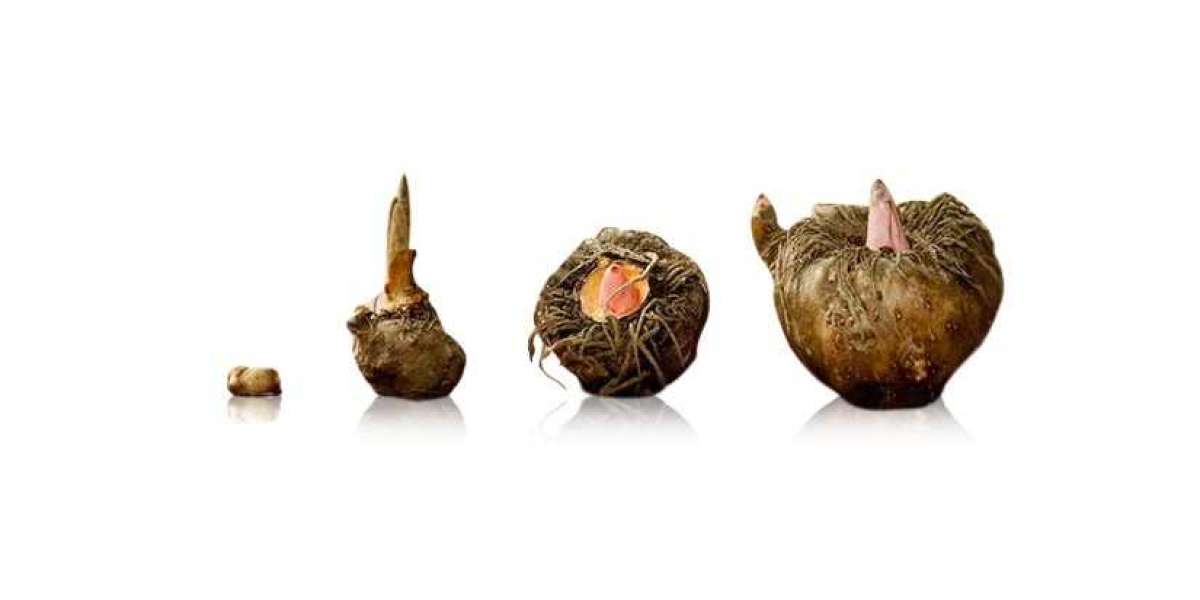This root vegetable has garnered attention for its low-carb qualities. Here, we reveal konjak's potential benefits and side effects and how you can use it. If you follow a keto lifestyle or you just try to keep your carb count low, you'll probably run across konjak in your quest for low-carb products. Konjak is a starchy root vegetable used in low-carb food products. Here, we'll explain more about what it is, what its potential benefits and downsides are and how to cook with it.
What Is Konjak?
Konjak, also known as elephant yam, is a plant commonly grown in Asia. The starchy bulb root, known as a corm, is used to make food like noodles and "rice" (similar to how you rice cauliflower). It contains glucomannan, a water-soluble dietary fiber, and is sometimes used as a weight loss supplement, according to a 2020 review in Obesity Medicine. Whether or not weight loss supplements that contain konjak work is still up for debate, however, and more research needs to be done.
It's important to beware of weight loss supplements, including ones that contain konjak. For example, according to a 2021 Food and Drug Administration (FDA) warning letter sent to Genesis Nutrition Ultra Slim, the company's weight loss supplement contained konjak, but it also contained undeclared and unauthorized pharmaceutical ingredients that were known to increase the risk of heart attack and stroke—and had cancer-causing properties. While the FDA regulates dietary supplements, it does not approve them like it does pharmaceuticals. Because of this, it's important to look for supplements that have been certified by credible organizations, such as NSF International, ConsumerLab, or the U.S. Pharmacopeial Convention.
How Do You Cook with Konjak?
In powder form, konjak is used to thicken soups and sauces the way you might use cornstarch. Several brands use it to make shirataki noodles or shirataki rice, both of which are considered low-carb and keto-friendly.
Shirataki noodles have a gelatinous texture and are commonly used in Japanese cooking. You can buy shirataki noodles online or find them in the Asian food section of your supermarket. The noodles and rice are marketed as low-carb (or no-carb). This is because their carb content is so low that the net carbs for a serving are zero. The theory is that those few carbs are fiber-rich and pass through your body without being absorbed.
You might also find konjak in your gluten-free baked goods. According to 2021 research in Foods, konjak flour is being used as an ingredient in gluten-free bread. Researchers state that the bread that had about 37.5% of its flour in the form of konjak had the best formulation (as opposed to others with more or less of the flour), including color, texture and volume. But what about the taste? In a 2022 study done by many of the same researchers and also published in Foods, researchers included taste to see how different percentages of konjak flour ranked. In this case, the breads with over 25% konjak flour were less palatable due to a fishy taste. The study authors explained that konjak can have a seafood-like flavor due to a compound called trimethylamine.
Is Konjak Good for You?
While its nutritional worth is still being evaluated, in January 2020, the FDA announced its intention to propose glucomannan be added to the definition of dietary fiber that was established in 2016. According to the FDA's 2020 statement, it made the decision based on scientific evidence that shows konjak may help lower blood cholesterol levels. A 2021 review in Biomolecules backs this claim up and adds that konjak has also been shown to alleviate constipation, improve the gut microbiome and reduce blood sugar levels. Study authors of a 2022 review in Food Science and Technology were so impressed by konjak's blood sugar-reducing abilities that they feel it may be a promising new way to prevent and treat diabetes.








